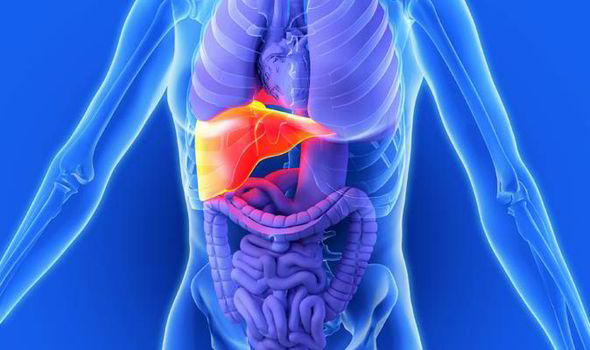The liver is a large organ that sits on the right side of the belly. Along with the gall bladder, pancreas, and intestines, it helps to digest and absorb your food. The liver’s main job is to filter blood coming from the gut before it is circulated to the rest of the body. The liver also detoxifies and breaks down chemicals in the blood, including drugs and toxic pollutants.
While a healthy liver has the ability to grow back, or regenerate, when it is damaged, chronic inflammation can damage the liver permanently… leading further to cirrhosis and liver cancer or liver failure if left untreated.
Unfortunately, there is no way to compensate for loss of liver function in the long term. Although liver dialysis may help for a little while, liver transplantation is the only long-term solution for liver failure. Therefore, it’s vital that you take steps to keep your liver healthy and cancer-free.
Causes of Liver Damage You May Not Be Aware Of
The liver plays a major role in how cholesterol, sugar, and iron are used and stored in the body. In fact, it is estimated that the liver carries out up to 500 different functions – including managing the storage of energy as glycogen, breaking down red blood cells, helping to make blood proteins, as well as enabling blood clotting and hormone production. The liver also makes bile, which is necessary for digesting fats.
Most people are aware of the link between alcohol consumption and liver damage, but the liver can be damaged in multiple ways. If left untreated, liver damage can progress further to liver disease.
Excessive use/abuse of painkillers – the liver and kidneys are the body’s main detoxification organs. Every drug you take is broken down by liver enzymes. Most allopathic drugs have the potential to damage the liver because of a buildup of toxic byproducts. However, prescription painkillers, especially those that contain acetaminophen, are the worst. Drugs like Vicodin, Lortab, and Percocet contain high doses of acetaminophen and can cause liver disease or even liver failure if overused or abused. Even over-the-counter products with acetaminophen, including Tylenol (Paracetamol), are well known to cause liver damage if not used carefully.
Cirrhosis – is a complication of liver disease in which liver cells (known as hepatocytes) are damaged, usually because of alcohol abuse or viral hepatitis B and C infections, leading to irreversible scarring of the liver. Cirrhosis can progress to liver cancer and liver failure.
Epstein Barr virus (EBV, or infectious mononucleosis) – more than 90% of adults worldwide are infected with this virus. When the immune system is weak or fails, EBV can cause liver inflammation– known as hepatitis – progressing to liver disease and liver cancer.
Non-alcoholic fatty liver disease (NAFLD) – is the name for the buildup of extra fat in the liver that is not caused by alcohol. It is normal for the liver to contain some fat. However, if more than 5-10% of the liver’s weight is made up of fat cells, then it is called a fatty liver. NAFLD usually develops in people who are overweight or obese or have diabetes, high cholesterol, or high triglycerides. According to some estimates, it affects up to 25% of people in the U.S. NAFLD can progress to cirrhosis and liver cancer or liver failure.
How Does Liver Disease Lead to Liver Cancer or Liver Failure?
Inflammation can happen in the liver because of multiple reasons. If inflammation is high and becomes chronic, it can damage the liver permanently.
If left untreated, an inflamed liver will start to scar and newly formed scar tissue will begin to replace healthy liver tissue, known as fibrosis. Scar tissue affects the liver’s ability to do its job properly. If still left untreated, the liver may become so seriously scarred that it can no longer heal itself.
This stage (when the damage cannot be reversed) is called cirrhosis. Cirrhosis can cause further complications, including liver cancer and liver failure.
Typical symptoms of liver cirrhosis include:
- Bleeding or bruising easily
- Buildup of fluid in the legs and abdomen
- Skin and eyes turning yellow, known as jaundice
- Intense itching in the skin
- Increased sensitivity to medications and their side effects
- Development of insulin resistance and type 2 diabetes
- Problems with concentration, memory, sleeping, or other mental functions because of buildup of toxins in the brain
Liver failure means that your liver is losing or has already lost most or all of its function. This is a very serious, life-threatening condition that demands urgent medical care because there is a high risk of coma and death.
Typical symptoms include nausea, loss of appetite, fatigue, and diarrhea. When liver failure happens because of cirrhosis, it usually means that the liver has been failing for a few years. This is known as chronic liver failure. Chronic liver failure can also sometimes be caused by malnutrition.
More rarely, liver failure can happen all of a sudden, sometimes in as little as 48 hours. This is called acute liver failure and is usually a reaction to poisoning, or a drug or medication overdose.
The Top 3 Ways to Reduce Your Risk of Liver Cancer Beyond Cutting Out Alcohol
#1 – Stop Eating Processed Pork Products
Along with liver damage as a result of viral infections, painkiller and alcohol abuse, and lifestyle-related diseases, there are other risk factors for liver cancer, including pork consumption.
Reports have strongly linked pork consumption to cirrhosis of the liver – in fact this association is stronger than that between alcohol and cirrhosis and has been seen across many countries consistently for at least 40 years. Other studies have also shown a connection between pork consumption and liver cancer.
Most pigs raised in the U.S. are fed grains and seed oils, which increase their content of omega-6 fatty acids and pro-inflammatory arachidonic acid. Consumption of this meat may contribute to a higher risk for liver disease. Also, most pork is in processed form – such as smoked ham, sausages, bacon, and processed lunchmeat – which are preserved in different ways, including the addition of chemical preservatives such as nitrates. Nitrates are converted into nitrosamines, which have clearly been linked to an increased risk of certain cancers.
Not only that, meat that is cooked at high temperatures can contain as many as 20 different kinds of cancer-causing compounds, including nitrosamines. Last but not least, pigs eat just about anything, making them a potential breeding ground for dangerous infections caused by retroviruses and other parasites. Some of these may contribute to cancer risk when we consume pork − including liver cancer.
#2 – Avoid Aspartame
Aspartame, an artificial sweetener also known as NutraSweet or Equal, is present in more than 6,000 products. Research has clearly shown that aspartame is a cancer-causing agent.
In one laboratory study, mice regularly given aspartame (from before their births until their deaths) showed a significantly higher incidence of both liver and lung cancer.
Another study, conducted by the European Ramazzini Foundation, an independent cancer research facility, confirmed aspartame’s carcinogenic potential. Male and female mice were given aspartame starting at 12 days of gestation until their deaths. Scarily, autopsies in male mice revealed malignant cancers of both the liver and lungs.
According to the report authors, “Aspartame in our experimental conditions induces in males a significant dose-related increased incidence of hepatocellular carcinomas [malignant liver cancer]. “
#3 – Detox Regularly
We live in a very toxic world. Hundreds if not thousands of pollutants in the air, water, and food can and do enter our body. While it may be difficult or even impossible to limit the entry of such toxins, we can certainly facilitate their rapid exit by detoxing regularly.
Liver cleansing is probably one of the most effective ways of detoxing and boosting our self-healing mechanism. People diagnosed with cancer will need multiple liver cleanses.
There are four main exits via which toxic waste can be expelled from our bodies – the bowel, urinary system, lungs or the upper respiratory system, and skin in that order. If any one of these exits is blocked, the next one in line has to pick up the slack, usually with unfortunate consequences for that exit. This means all four exits need to be thoroughly detoxed – in the right order – for a detoxing program to be truly effective.
After the bowel and urinary system have first been thoroughly detoxed, the liver needs to be cleansed for a minimum of 5-7 days so that built-up toxic wastes can exit easily through the previously cleansed and open urinary system and the bowel.
Source: TheTruthAboutCancer


























